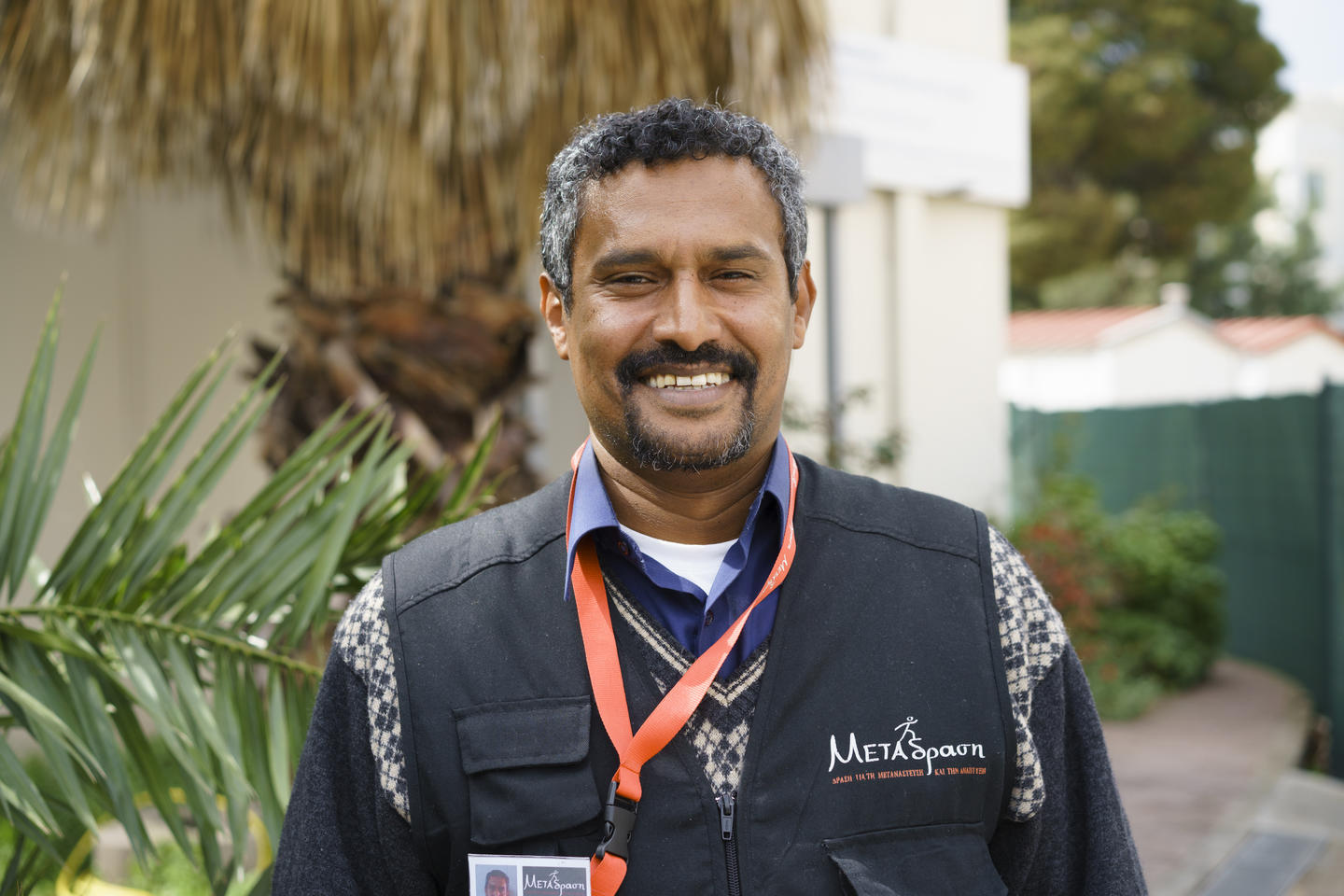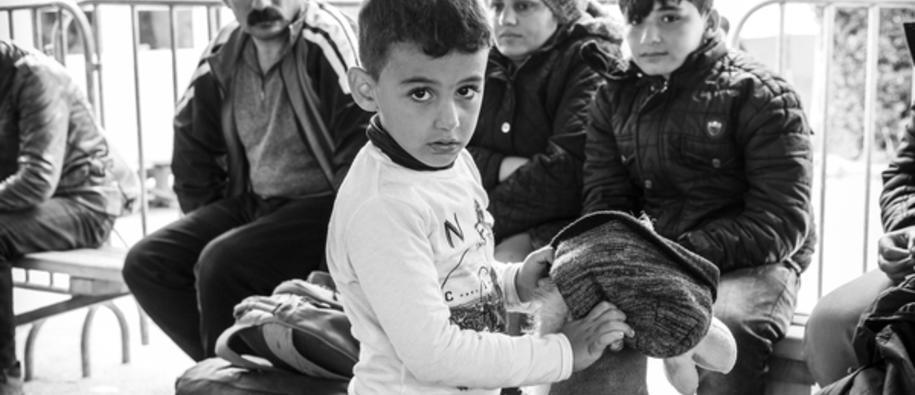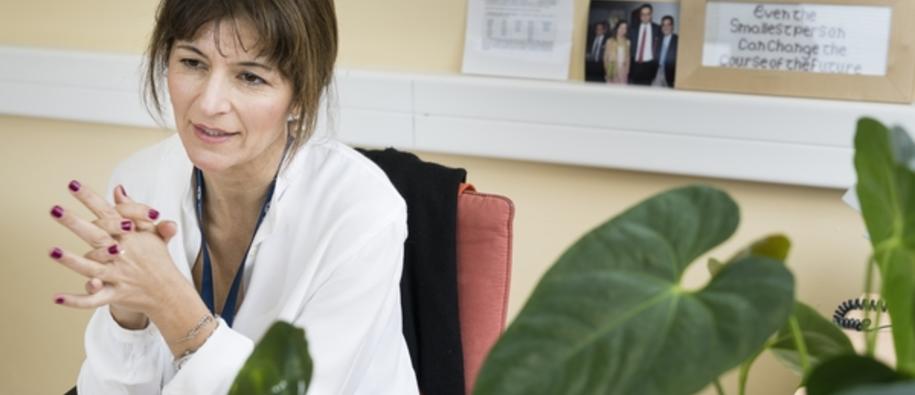George Maragoudakis has been working as an interpreter for the Greek Asylum Service (AS) for six months. He is one of 80 interpreters financed through the EEA Grants asylum programme in Greece, contracted to AS via the humanitarian NGO, Metadrasi.
It is a vital role. Vulnerable and often highly traumatised, asylum applicants also face the challenge of navigating the legal system in an unfamiliar environment. Language differences are the first obvious barrier. Applicants are entirely reliant on an interpreter to present their claim accurately, and the asylum service relies on the interpreter to facilitate the investigation of the claim.
Before 2010, Greece didn’t have an asylum service. Today it employs 260 people, but is still drastically underfunded. It is also overwhelmed as the volume of work has grown beyond any predictions.
Convergence of two crises
In 2015, a staggering one million migrants and refugees crossed into Europe, most of them making the perilous journey from Turkey to Greece. The scale of the crisis continues, with over 135 000 people arriving in the first two months of 2016.[1] This has put huge pressure on asylum systems in many European countries, but particularly in Greece.
The situation would be tough at the best of times. But for a country struggling to keep its economy afloat, the influx of 2 000-3 000 new arrivals each day has stretched state structures to the limits.
The context too is rapidly changing. Until recently, Greece was viewed as a transit country. But as other European countries grapple with the mass movement of people, some have tightened border controls. This has left tens of thousands of migrants stranded in Greece.
“The scenario is changing every day,” says Maria Stavropoulou, Director of the Asylum Service. “The biggest problem for us is that we can’t plan. The lack of predictability is a massive issue.”
Building capacity
In this context, a grant of €5 million to AS has been a lifeline. In total, Iceland, Liechtenstein and Norway are providing €24.2 million from the EEA Grants to strengthen the capacity of the Greek asylum and reception systems.
Almost 13 500 decisions on international protection claims were taken between May 2014 and December 2015. While shortcomings are still apparent, this is a significant rise compared to the previous year.
“The EEA funding is providing for the entirety of our interpretation. It also covers a number of staff. We estimate that the extra personnel have contributed to the rise in the number of cases processed at a 20-25% rate,” explains Stavropoulou.
“Essentially, without this project, the AS would not have been able to operate. Without interpretation we can’t function. And without the extra case workers, we wouldn’t be able to process as many people or would have longer waiting times.”
RESULTS
- 50 extra registration staff and case workers recruited
- 80 interpreters, 2 social workers and 1 psychologist recruited
- Information leaflet for asylum-seekers produced in 21 languages
Responsibility
With an Ethiopian mother and a Greek father, Maragoudakis also speaks Arabic from his school years spent in Khartoum in Sudan. The language skills of people like George are much sought after for the service.
“Amharic is my mother tongue but my brain works in Greek!” he says (in perfect English), grinning.
But perhaps it’s even more his chequered background that gives Maragoudakis the empathy he shares with the people he now meets every day.
“It’s a big responsibility we have, helping applicants tell their story. I’m very conscious of that. You try to keep a distance but it’s not always easy. One good thing is that I think I’ve found what I want to do with my life. I come home every day very tired but happy.
“I wish I wasn’t seeing what I see every day. I wish it wasn’t happening. But it is, and so for as long as I’m needed, I’ll keep trying my best to help.”
With the responsibility can come stress. One experimental position funded by the Grants is that of a psychologist to work with staff. According to Stavropoulou, this has been an important addition:
“Staff here are constantly hearing stories of people who have experienced horrendous situations – persecution, torture… And then they have to take a decision that will affect the life of the asylum applicant forever. That takes an emotional toll. The psychologist has really helped staff deal with the stress and recognise symptoms of burn-out.”
Another achievement has been the close cooperation with the Norwegian Directorate of Immigration (UDI). As programme partner, UDI works closely with the authorities to share its experience on handling asylum requests and the running of reception centres.
“The unstable economic and political climate combined with the massive influx of migrants has proved incredibly challenging. But we’ve stayed the course. We’ve advised when programmes have had to adapt. And we’ve created synergies with other stakeholders. This has really helped to strengthen migration management,” commented Yiannis Tavridis of UDI.
Future hope
Behind the desk of Maria Stavropoulou hangs the motto: “Even the smallest person can change the course of the future”.
Faced with a mammoth task, it might be easy to lose hope. But the dedication of individuals working in the AS services, added to the generosity of ordinary people, as Maragoudakis underlines, is making all the difference.
“I know a lot of people criticise Greece. But it’s not easy to receive thousands of new arrivals every day. Even without the economic crisis, it would be unreasonable to expect a small country to bear this burden on its own.
“Here in Greece, so many people have problems themselves. I thought that people would react negatively. But it’s been the opposite. So many people are offering help. I’ve seen many moments of light in the difficult days. And that makes me really proud to be Greek. I’m proud of the very humane response of the people here.”
[1] UNHCR (2015)
More
In response to the worsening crisis, Iceland, Liechtenstein and Norway increased the funding from the EEA Grants scheme to the two asylum programmes in Greece by €3.3 million. This brings the total allocation for asylum and migrants projects to €24.2 million.
As well as support to the Asylum Service, funding is also being provided to the First Reception Service screening centres operations at Fylakio and Lesvos and to a number of reception centres. Particular attention under both is given to unaccompanied asylum seeking children.
A further €6.5 million from NGO programmes in a number of beneficiary countries supports migrant welfare and integration projects.


